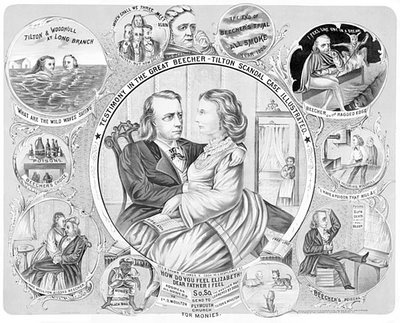In other churches, having lost every vestige of sanctity, music is regarded outright as one of those forms of moral amusement in which men may indulge without sin, in the church, and on the Sabbath; and they plunge their hands into their pockets and pay for professional singing. Then King David finds himself in the hands of the Philistines. The unwashed lips that all the week sang the disgustful words of glorious music in the operas, now sing the rapture of the old Hebrew bard, or the passion of the suffering Redeemer, with all the inspiration of vanity and brandy....
... And thus music, that should nurse hymns upon its bosom, abuses them, like a cruel step-mother, and thrusts them away. Hundreds of hymns have been served worse than Herod served the innocents—for he killed them outright; but a hymn cursed by musical associations, cannot die, but creeps along like a crippled bird...
...
Are trouble and music twin brothers? Is there no way of edification through music, or must we regard and endure it as a necessary evil?
—Henry Ward Beecher,
New Star Papers; or Views and
Experiences of Religious Subjects
(1859)

No comments:
Post a Comment